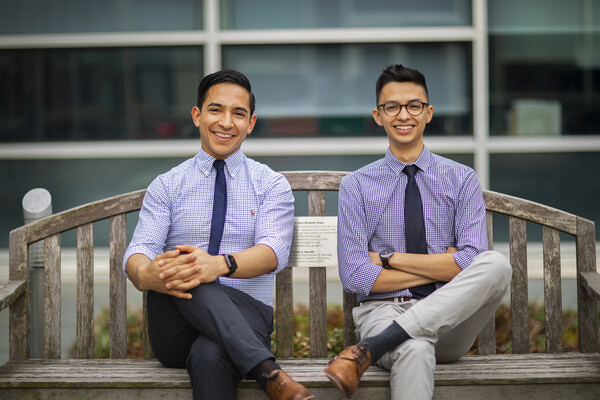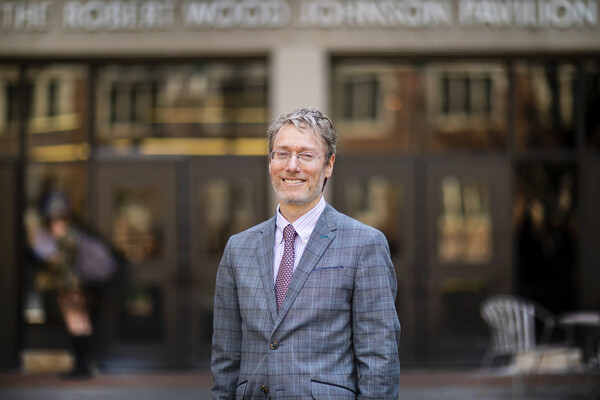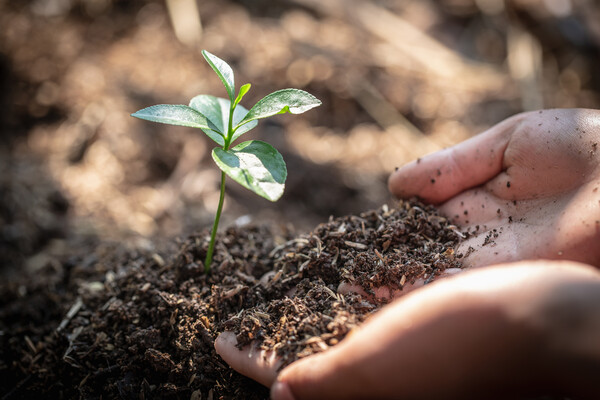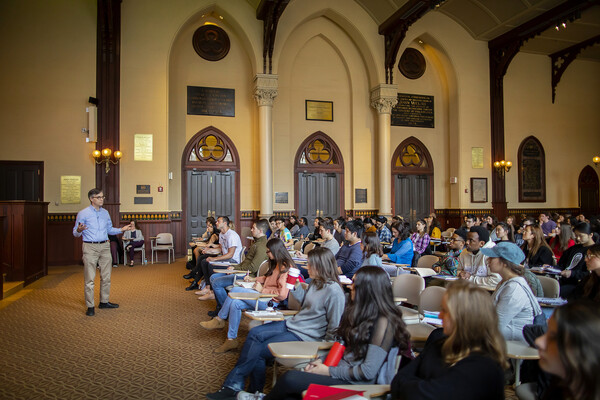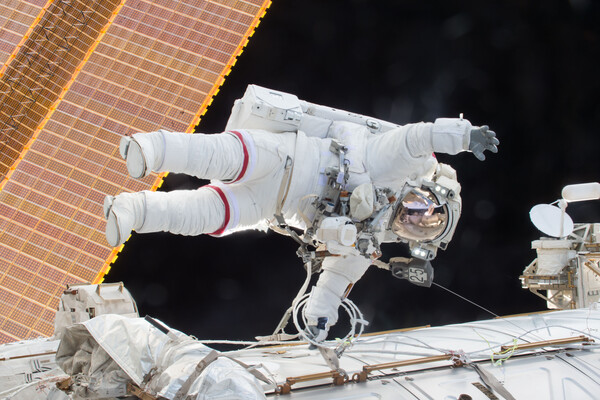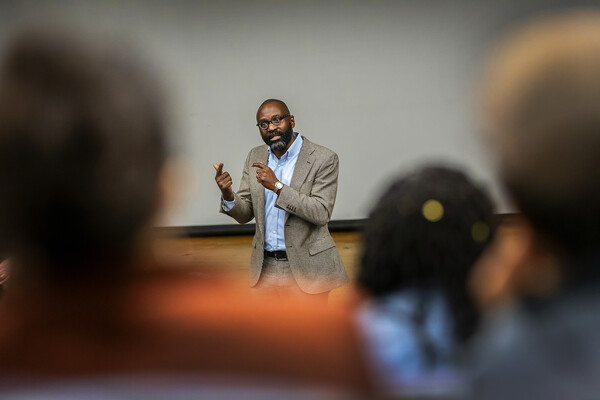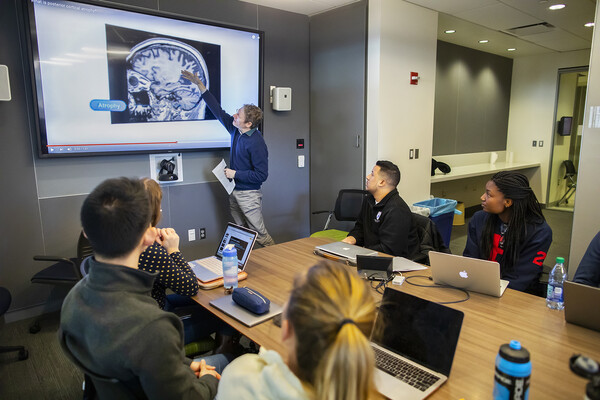
A new course taught by PIK Professor Jay Gottfried (standing) has students leading discussions on cognitive neuroscience topics during one session, like the class shown here, then at the next, brings them face to face with people who have those or similar conditions.
